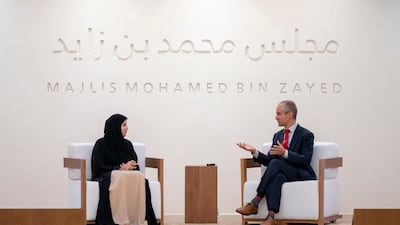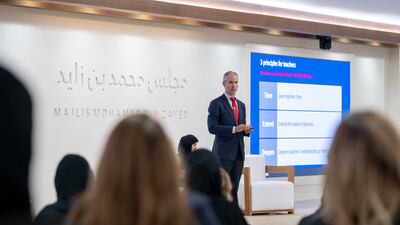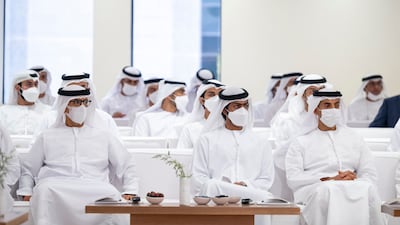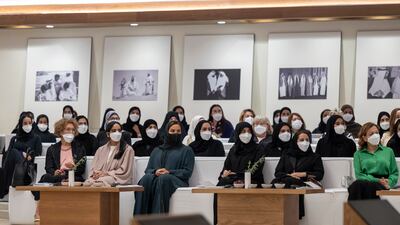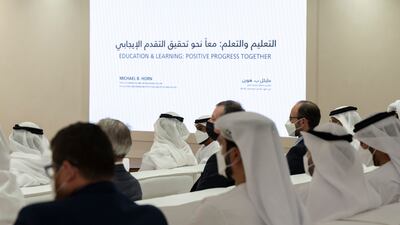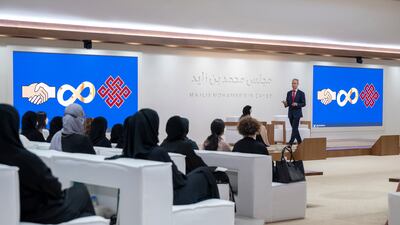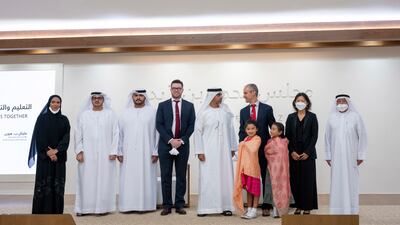The world needs to recreate traditional ways of schooling and allow pupils the flexibility to learn at their own pace, a leading education expert has said.
Speaking at the Majlis Mohamed bin Zayed in Abu Dhabi this week, Michael Horn, author and adjunct lecturer at the Harvard Graduate School of Education, said traditional schools were hurting pupil motivation and achievement.
He called for a new education system where pupils are not labelled by their grades.
lecturer at the Harvard Graduate School of Education
Mr Horn supports the mastery-based education approach, in which pupils only move on from a concept once they demonstrate mastery of the knowledge and skills at hand.
“Around the world, there is no country in which all [pupils] are excelling in fulfilling their human potential,” he said.
“In the majority of countries, we leave countless [pupils] behind in the zero-sum education system. There are many more losers than there are winners.
“In the United States, where I'm from, only one third of 12th grade [pupils] are proficient in maths and reading.
“This zero-sum education system systematically undermines collateral co-operation, systematically undermines co-operation, systematically undermines interconnectedness and is not only limiting the social development of our children, it is limiting their academic development as well.”
During a lecture titled “Education and Learning: Positive Progress Together”, he said schools were mostly all built on a zero-sum mentality, which considers the educational success of one child as paid for by the failure of another.
Allow pupils to learn at their own pace
The “road to a mastery-based education system” is simple but needs everyone’s collaboration, said Mr Horn.
Allowing each child to learn or master subjects at their own pace will help them to develop cognitive skills such as “critical thinking, creativity, communication and collaboration”, he said.
While mastery-based learning is a method often discussed by teachers, it is rarely put in practice because of the current system, which simply labels pupils as high or low achievers.
“We have built failure into the system by its very design,” he said.
“We have embedded the failure rates that we see by having a system that is fixed-time, with variable learning for every single child.
“But the good news is if we flip that equation we move to a system in which the learning is fixed, we guarantee mastery for every single child and we allow the time to be variable.”
By promoting this kind of learning method, every pupil will achieve learning success and develop as self-directed learners where they get to set a goal, plan how they are going to realise that goal, do the learning itself and then show evidence through an assessment or other means of what they have learnt.
At the mastery-based system, failure is part of the learning process and teachers play a critical role that is somewhat different than their current one.
“I think the big shift that we need to make is to team teaching; co-teaching for teachers where they get to be with other teachers in the classrooms,” said Mr Horn.
“To create a more interconnected learning environment where pupils are not islands unto themselves with one teacher, but there is more support for each teacher and the children have a web of support.”
Sheikh Hamed bin Zayed, managing director of Abu Dhabi Investment Authority, attended the lecture at Al Bateen Palace in Abu Dhabi on Thursday.
